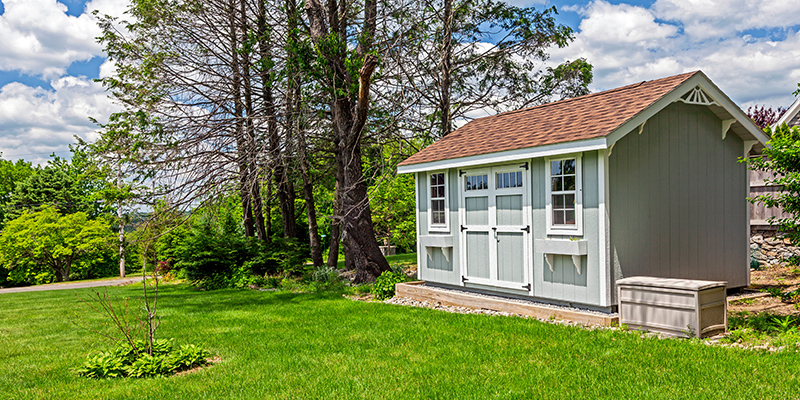5 Financial Tips For HOA Managers

Homeowners associations are, in many ways, business organizations. They collect dues from members and, in return, provide amenities and services as well as help preserve property values. While it may seem like a simple operation, managing an HOA comes with its own set of challenges — challenges made even more difficult with the recent pandemic.
Browse By Category
Sign up for Our Newsletter
Homeowners associations are, in many ways, business organizations. They collect dues from members and, in return, provide amenities and services as well as help preserve property values. While it may seem like a simple operation, managing an HOA comes with its own set of challenges — challenges made even more difficult with the recent pandemic.
A particular area of concern among HOAs is the budget. The pandemic brought on a shortfall in revenue, and a recent report from GlobeNewsWire.com showed that a third of HOA survey respondents cut back on expenses out of concern for future revenue. Luckily, while tough, there are some budgeting strategies HOA managers can adopt to pull through the pandemic without sacrificing the quality of service.
1. Explore New Accounting Methods
There are three accounting methods homeowners associations can use — cash accounting, accrual accounting, and modified accrual accounting.
Out of the three, cash accounting is the easiest since it only requires you to report revenues and expenses as money changes hands. Accrual accounting, on the other hand, reports revenues as you earn them and expenses as you incur them. This basis of accounting does not pay mind to when money changes hands.
Finally, modified accrual accounting (or modified cash accounting) is a combination of the first two methods. Using this basis, you report revenues as you earn them and expenses when you spend them. Accrual accounting is widely regarded as the best method of accounting.
You may want to consider switching from your current accounting method to allow for better cost-efficiency. To ensure accuracy, though, it is best to record transactions on a weekly, monthly, and yearly basis. In addition to this, the experts from HOAManagement.com recommend frequently reviewing financial statements to monitor your financial health.
2. Avoid Commingling Funds
It is easy to make a mistake and categorize expenses under the wrong fund, resulting in inaccurate financial reports. Keep an eye out for such errors and make sure you never commingle funds.
Your association’s operating fund should cover regular maintenance and other expenses that occur often. You should also have a “deferred maintenance” fund to cover more irregular expenses. Finally, your reserve fund should cover the cost of major repairs and replacements in the future as well as any unanticipated expenses.
3. Evaluate Your Insurance Policies
It is essential to review your existing insurance policies during this time. Perhaps you are paying way more than you should for your policy or for certain riders. As AskMoney.com writes, homeowners insurance should have coverage for damages resulting from theft, vandalism, and natural disasters. In addition to this, your HOA’s insurance should also cover such damages and provide protection from liability.
When reviewing your insurance policies, check for any areas where covered is not necessary. For instance, if you live in a place where snowfall is rare, having coverage for damages resulting from snow does not make sense. In contrast, you should consider better coverage for likelier risks based on your location. If you live in California, for example, earthquake coverage is a must.
While you may feel tempted to completely cut insurance from your budget, such an act will only get you in more financial trouble in the long run. If something happens and you don’t have insurance for it, your association will end up spending more money.
4. Come Up With a Good Investment Plan
If future revenue is something you are worried about, consider investing a portion of your reserve fund to earn returns. Of course, investments usually come with limitations outlined within your governing documents. You may be limited to a dollar amount or prevented from investing at all. The governing documents may also dictate what types of investments are permitted.
There are three things you must keep in mind when choosing an investment plan — safety, liquidity, and yield (in order of importance).
- Safety. You will want to invest in something that offers a low risk of loss such as certificates of deposit (CDs) and bank savings accounts.
- Liquidity. You should be able to convert your investment into cash quickly.
- Yield. Look for an investment that offers reasonable returns without compromising safety and liquidity.
5. Update Your Reserve Study Regularly
A reserve study will gauge the health of your reserve fund. It determines how long it will be before you need to repair or replace the association’s components. Beyond that, a reserve study estimates the cost of such repairs and replacements.
Conducting a reserve study is vital to the financial success of any HOA. With it, you can plan how much money your reserve fund should have and how you can reach that level.
However, it is not enough to simply perform the study — you must also take action based on the findings. You do not want a repeat of what happened to the Surfside condo in Florida in June earlier this year.
According to CNN.com, an independent budget review had warned the condo association that they had zero remaining years of useful life and that their reserves were severely underfunded. The association essentially had no money to pay for repairs yet still failed to raise sufficient funds after the review revealed that information. The condo ultimately collapsed.
A Better Community Overall
The pandemic has certainly jeopardized the financial stability of many associations. With proper planning and evaluation, though, you can overcome these hurdles and be prepared for any future troubles. On top of that, these tips will also help you improve your community’s property value.
Trending Now
Related Article
Sign up for Our Monthly Newsletter
Sign up below for monthly updates on all HOA Resource
















